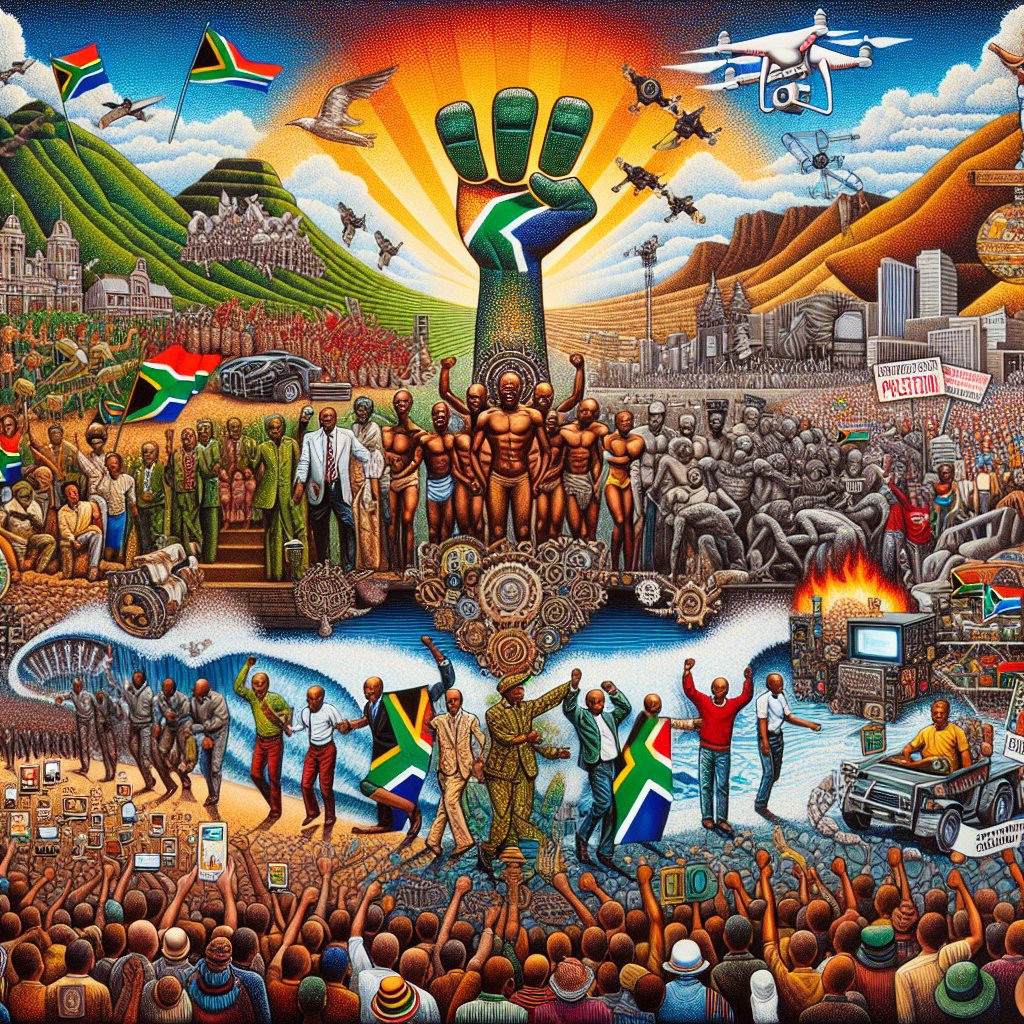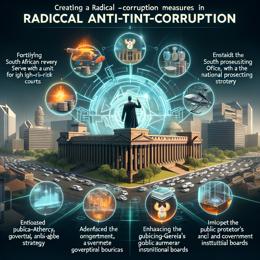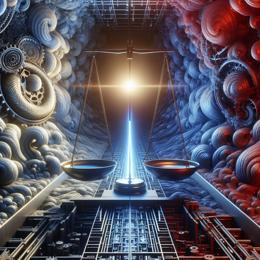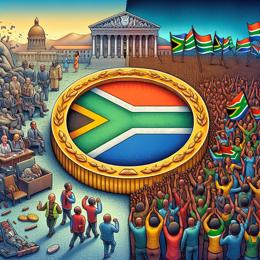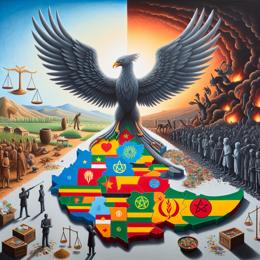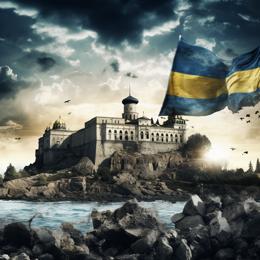Content created by AI
Democracy Struggles: Contemplating South Africa's Political Anniversaries and Current Landscape
South Africa, a nation etched with the historical marks of struggle and resilience, recently commemorated two critical political milestones that have shaped its democratic landscape. This year, we observed the golden jubilee of the Durban strikes in January and the 40th anniversary of the United Democratic Front (UDF) in August. Yet, beyond ceremonial acknowledgment, there lies an unsettling trajectory: the co-opting of once vibrant movements into a more constrained and elite-dominated political order, subtly eroding the fervor of grassroots democracy that these milestones once represented.
In the heyday of the 70s and 80s, under the shadows of apartheid's oppressive regime, South Africa witnessed the burgeoning of a trade union movement and the UDF—with spirited notions of a participatory democracy championed by icons like Nelson Mandela. Mandela envisioned a society free from poverty and insecurity, with fervent aspirations for a revolutionary democracy deeply woven into the fabric of society.
However, the official commemorations of these anniversaries appear to have bypassed the original commitment to nurturing popular democratic power. The trade unions and the UDF have been maneuvered to align with the African National Congress (ANC), echoing a contemporary language of 'civil society'. A language that, sadly, often resounds with limitations, overseeing roles rather than catalyzing substantial societal transformation.
Scrutinizing South Africa's political evolution, what seems evident is a pattern resonant across many post-colonial African narratives, described aptly by Frantz Fanon: After the elation of victory against colonial rule subsided, the political space, once flared by popular participation, receded to accommodate elite strategies. Yet, South Africa’s narrative is distinctively nuanced. It engaged with 'democracy promotion' influenced by international backers like USAID and the National Endowment for Democracy, encouraging a shift from dictatorships to liberal oppositions—a shift subtly geared toward safeguarding economic elites by quelling calls for comprehensive transformations.
The rise of 'civil society' as a perceived democratic force, primarily consisting of donor-funded NGOs, perpetuated a model that lacked democratic mandates and answered to boards rather than the populous. These organizations, though sometimes effective in their pursuits, could not replace the vigorous and diverse arenas of popular democracy that simmered during the struggle against apartheid.
Fast forward to the present, and the ANC's debilitation into a "violently predatory force" has tarnished the legitimacy of the party and the state as credible and productive social actors. This devaluation, combined with a disproportionate media focus on corruption, runs the risk of a slide away from core democratic principles, potentially paving the way for demagogues who promise an elusive purge of the political swamp.
Intriguingly, recent developments in South Africa's political theatre introduce Roger Jardine, a new player, allegedly supported by wealthy funders poised to shape political discourses. While questions loom over the influence these 'funders' wield, it signals an alarming trend—away from collective decision-making towards oligarchic interventions.
Jardine's campaign speaks to 'centering communities', yet it's tinted with the hues of past ideologies shaped by right-wing think tanks, evoking questions about the character of his prospective leadership and the interests it truly serves. His backers' reputed profiles and political dispositions warrant scrutiny, especially in the shadow of global geopolitics and fraught ethics.
In the same vein, it’s crucial to highlight that South Africa houses activists from a bygone era, now assimilated into liberal elite circles, potentially compromising the radical ethos that once mobilized movements like the UDF. The realignment of these former radicals serves as a sharp reminder that current political currents often stray from the shores of democratic ideals they once fought to secure.
For South Africa’s democracy to evolve healthily, a revival is imperative—an alternative political narrative, anchored in democratic principles, inclusive of the working-class majority, integrated with robust anti-corruption initiatives, and respectful of trade unions and autonomous organizations.
As the country navigates its complex political currents, the coming electoral tests will provide a crucible for the legitimacy and resonance of new political entities. Amidst the retrospection of political anniversaries and the introspection of current dynamics, the search for a reinvigorated path of democracy—one that reveres the popular will and undoes past injustices—remains the generational mandate.
It's worth noting that these reflections delve into the soul of South Africa’s political journey—a pilgrimage into its own heartbeat of democracy, where every step backward in commitment demands a resilient leap forward in action.
